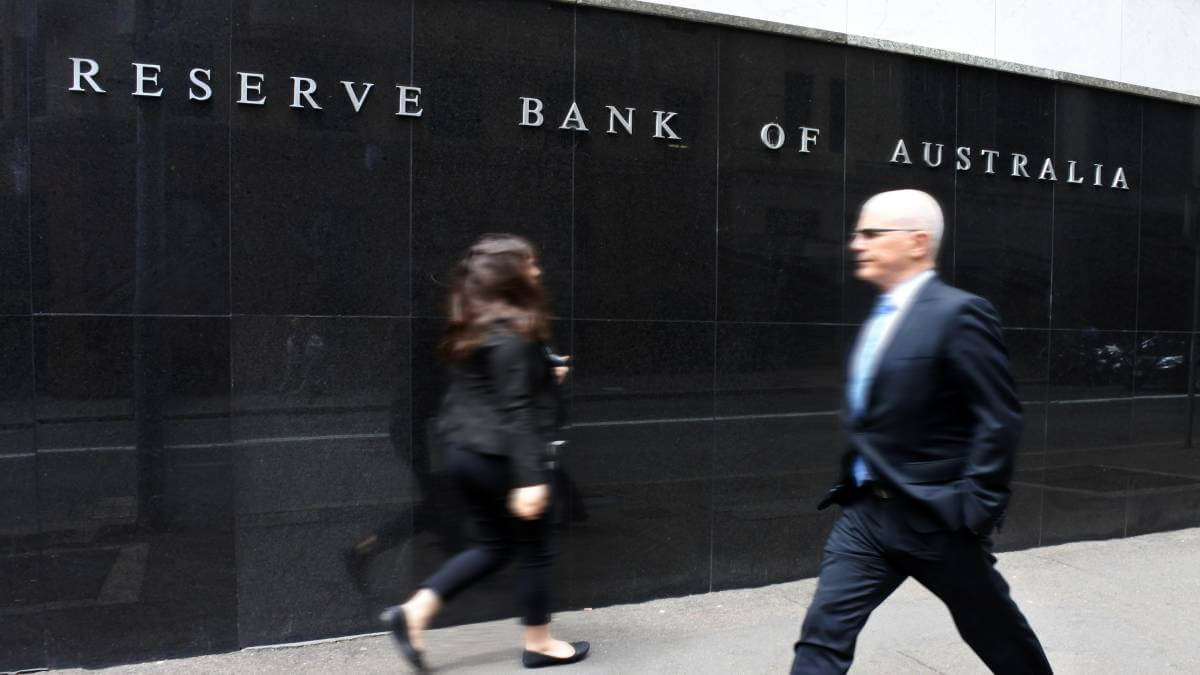Consumer prices rose 0.8 per cent over the three months to June, making a 6 per cent increase over the past year.
The result is slightly lower than most economists were expecting and reduces the chances of a Reserve Bank interest rate rise next Tuesday.
The Reserve Bank’s preferred measure of underlying inflation, which excludes the most volatile price changes, came in at 0.9 per cent for the quarter and 5.9 per cent over the 12 months to June.
The RBA targets an inflation rate of 2-3 per cent, with quarterly inflation now running at an annualised pace of 3.6 per cent on its preferred trimmed mean measure.
Sean Langcake, from Oxford Economics, said that even though inflation remained above target, it was coming down more quickly than the Reserve Bank expected in its most recent forecasts.
“While there are still concerns around the labour cost outlook, we think these data will buy the RBA some more time and allow them to keep rates on hold a little longer,” he argued.
Financial markets agree, with the odds of a rate hike in August dropping from just over 50 per cent to around 30 per cent, according to Refinitiv data.
Has the RBA already gone ‘too far’?
Stephen Smith from Deloitte Access Economics went further, slamming the Reserve Bank, and much of the economics profession, for its response to the inflation spike.
“The inflation data released today is further evidence that the Reserve Bank has increased interest rates too far,” he wrote in a note responding to the figures.
“Excessive inflation in Australia has mostly been caused by supply side factors, meaning that interest rate increases have mostly been ineffective at bringing inflation under control.
“Rather, inflation has fallen as a result of repairs to global supply chains and an easing of import prices.
“The Australian economy is softening dramatically, the pace of inflation has peaked and is moderating quickly, wage growth is not excessive and medium-term inflation expectations are not rising. In that context there should be no further interest rate increases in Australia.”
In fact, he argued the further interest rate rises could even reinforce some of the current drivers of inflation.
“In those areas of the Australian economy that are still seeing strong price growth – namely housing and energy markets – supply side challenges are similarly to blame,” he continued.
“Higher interest rates will not encourage a faster energy transition, nor unleash a wave of home building. Instead they will make these issues worse.”
However, Marcel Thieliant, from Capital Economics, said he still believed the Reserve Bank should implement at least one more rate rise.
“The bank may well conclude that the battle against inflation has been won,” he noted.
“However, we think that this would be a risky move given that the slowdown in inflation was driven by weaker goods inflation, which plunged from 7.6 per cent to 5.8 per cent.
“Services inflation, which the RBA believes is stickier, accelerated further from 6.1 per cent to 6.3 per cent, the highest it has been since the launch of the GST two decades ago.”
Rents rise at fastest pace since 1988
Falling prices for domestic travel and accommodation (-7.2 per cent), electricity (-1.8 per cent), clothing accessories (-2.2 per cent) and automotive fuel (-0.7 per cent) helped lower inflation over the quarter.
However, those price cuts were offset by rising rents (+2.5 per cent), international holiday travel and accommodation (+6.2 per cent), other financial services (+2.5 per cent), new dwellings purchased by owner-occupiers (+1.0 per cent) and food (+1.6 per cent).
The surge in asking rents seen over the past year or so has finally fed through to a jump in the official Australian Bureau of Statistics measure as more leases have rolled over.
“Rents recorded the strongest quarterly rise since 1988, reflecting low vacancy rates amid a tight rental market,” noted Michelle Marquardt, the ABS head of price statistics.
“Rental price growth for flats continued to outpace the growth for houses.”
 2020 Australian Broadcasting Corporation. All rights reserved.
2020 Australian Broadcasting Corporation. All rights reserved.
ABC Content Disclaimer


What? Electricity has gone down 1.8% in the past quarter? Somewhat overshadowed by many experiencing electricity prices going up between 20 and 30% on the 1st of July! As electricity costs are a major part of most peoples budget, inflation will be a very real impost for the average Australian. That domestic travel and accommodation has gone down ~7% is of no matter to most people as the majority do not travel more than once or twice a year.
For most retirees, an increase in interest rates will work to their benefit as Term Deposits are popular and at least have risen from little more than a token value to something we can see.
Economists from different schools argue about what really does drive inflation and for every theory there is a counter theory and how it goes often appears to defy all rational reasons.
I am curious why economists do not ask the question; do we know the impact of the last twelve interest rises on demand for goods and services, unemployment, wage rises, and our standard of living? Without knowing these effects, how do we know the interest rate rises work well against inflation caused by global events, government stimulus during the Pandemic, climate change, and fuel and energy supply by the consortium? With globalization, our economy is open to external effects. The Governor of RBA armed himself with a small dagger of interest rises to combat the inflation dragon imported from overseas. I admire his courage and heroic determination; too bad for the Aussie battlers.